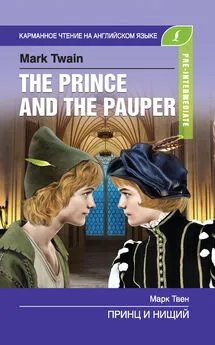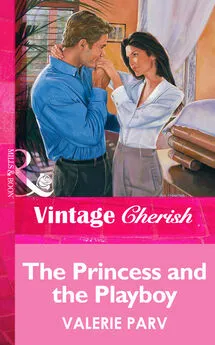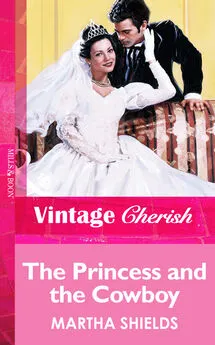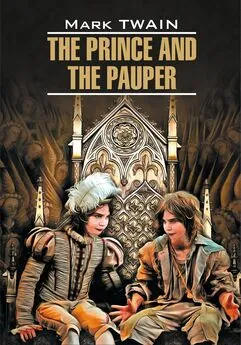Oscar Wilde - The Happy Prince and Ohter Tales
- Название:The Happy Prince and Ohter Tales
- Автор:
- Жанр:
- Издательство:неизвестно
- Год:неизвестен
- ISBN:нет данных
- Рейтинг:
- Избранное:Добавить в избранное
-
Отзывы:
-
Ваша оценка:
Oscar Wilde - The Happy Prince and Ohter Tales краткое содержание
The Happy Prince and Ohter Tales - читать онлайн бесплатно полную версию (весь текст целиком)
Интервал:
Закладка:
school [sku:l ] envious ['enviəs ] spoil [spOil ]
“‘What a silly boy you are’! cried the Miller; ‘I really don’t know what is the use of sending you to school. You seem not to learn anything. Why, if little Hans came up here, and saw our warm fire, and our good supper, and our great cask of red wine, he might get envious, and envy is a most terrible thing, and would spoil anybody’s nature. I certainly will not allow Hans’ nature to be spoiled. I am his best friend, and I will always watch over him, and see that he is not led into any temptations.
Besides, if Hans came here (кроме того, если Ганс пришел бы сюда) , he might ask me (он, может быть, попросил бы меня) to let him have some flour on credit (позволить ему взять: «иметь» немного муки в кредит) , and that I could not do (а этого я не мог бы сделать) . Flour is one thing (мука — это одно дело) , and friendship is another (а дружба — другое) , and they should not be confused (и их не следует смешивать; to confuse — смущать; смешивать, спутывать) . Why, the words are spelt differently (ведь эти слова пишутся по-разному; to spell (spelled, spelt) — произносить или писать слово по буквам) , and mean quite different things (и означают совершенно разные вещи; to mean — иметь в виду; означать) . Everybody can see that (каждый это понимает: «может это понять»; to see — видеть; понимать, сознавать) .’
“‘How well you talk (как хорошо ты говоришь) ’! said the Miller’s Wife (сказала Жена Мельника) , pouring herself out (наливая себе; to pour — лить(ся), наливать, разливать) a large glass of warm ale (большой бокал теплого эля/светлого пива; glass — стекло; стакан, бокал) ; ‘really I feel quite drowsy (право слово, я почти что спать хочу: «чувствую себя вполне сонной»; drowsy — сонливый, сонный, to feel drowsy — хотеть спать) . It is just like being in church (прямо как в церкви: «это похоже на то, как будто находишься в церкви»; being — существование; пребывание) .’
confused [kən'fju:zd ] ale [eil ] drowsy ['draυzi ]
Besides, if Hans came here, he might ask me to let him have some flour on credit, and that I could not do. Flour is one thing, and friendship is another, and they should not be confused. Why, the words are spelt differently, and mean quite different things. Everybody can see that.’
“‘How well you talk’! said the Miller’s Wife, pouring herself out a large glass of warm ale; ‘really I feel quite drowsy. It is just like being in church.’
“‘Lots of people act well (многие /люди/ поступают хорошо; to act — действовать, вести себя) ,’ answered the Miller (ответил Мельник) ; ‘but very few people talk well (но очень немногие /люди/ хорошо говорят) , which shows (что показывает) that talking is much the more difficult thing of the two (что разговор — гораздо более сложная вещь из двух) , and much the finer thing also (и гораздо более изящная вещь, к тому же; fine — ясный; утонченный, изящный) ’; and he looked sternly (и он сурово посмотрел) across the table at his little son (через стол на своего маленького сына) , who felt so ashamed of himself (которому было так за себя стыдно; to feel (felt), shame — стыд, позор; ashamed — пристыженный) that he hung his head down (что он склонил голову; to hang (hung, hanged) — вешать, to hang one's head down — стыдиться, повесить голову) , and grew quite scarlet (и совершенно покраснел; to grow (grew, grown) — расти; делаться, становиться; scarlet — ярко-красный; раскрасневшийся) , and began to cry into his tea (и начал плакать в свой чай = и слезы стали капать в /его/ чай) . However, he was so young (однако он был настолько мал: «молод») that you must excuse him (что вы должны извинить/простить его) .”
“Is that the end of the story (это конец всей истории) ?” asked the Water-rat (спросила Водяная Крыса) .
“Certainly not (конечно же нет) ,” answered the Linnet (ответила Коноплянка) , “that is the beginning (это только начало) .”
ashamed [ə'∫eimd ] scarlet ['skα:lit ] excuse [ik'skju:z ]
“‘Lots of people act well,’ answered the Miller; ‘but very few people talk well, which shows that talking is much the more difficult thing of the two, and much the finer thing also’; and he looked sternly across the table at his little son, who felt so ashamed of himself that he hung his head down, and grew quite scarlet, and began to cry into his tea. However, he was so young that you must excuse him.”
“Is that the end of the story?” asked the Water-rat.
“Certainly not,” answered the Linnet, “that is the beginning.”
“Then you are quite behind the age (тогда вы совершенно отстали от века; behind — сзади, позади; age — возраст; век, эпоха) ,” said the Water-rat. “Every good story-teller nowadays (каждый хороший рассказчик в наши дни; to tell — рассказывать) starts with the end (начинает с конца) , and then goes on to the beginning (и затем переходит к самому началу; to go on — идти дальше, продолжать; разг. переходить к чему-либо) , and concludes with the middle (и завершает /рассказ/ серединой; to conclude — заканчивать, завершать) . That is the new method (это новый способ/метод) . I heard all about it (я услышал все о нем; to hear (heard)) the other day (на днях) from a critic (от одного критика) who was walking round the pond (который гулял тут вокруг пруда; to walk — ходить, гулять) with a young man (с каким-то молодым человеком) . He spoke of the matter (он говорил на эту тему; matter — вещество; сущность, предмет /дискуссии, обсуждения/) at great length (весьма детально/просторно; length — длина, расстояние) , and I am sure (и я уверена) he must have been right (что он, должно быть, прав) , for he had blue spectacles (так как у него были синие очки) and a bald head (и лысая голова) , and whenever the young man made any remark (и когда бы тот молодой человек ни заговаривал: «делал какое-нибудь замечание») , he always answered ‘Pooh!’ (он каждый раз: «всегда» отвечал «ха!»; pooh — ха, фи, тьфу — выражение пренебрежения, презрения) But pray (но, пожалуйста; to pray — молиться; просить) go on with your story (продолжайте рассказывать: «вашу историю») . I like the Miller immensely (мне страшно: «в огромной степени» нравится Мельник; immense — неизмеримый, огромный, колоссальный) . I have all kinds of beautiful sentiments myself (я сама обладаю всякого рода прекрасными чувствами) , so there is a great sympathy between us (поэтому между нами существует огромная симпатия/взаимопонимание) .”
length [leŋθ ] spectacles ['spektək(ə)lz ] pooh [pu:] sympathy ['simpəθi ]
“Then you are quite behind the age,” said the Water-rat. “Every good story-teller nowadays starts with the end, and then goes on to the beginning, and concludes with the middle. That is the new method. I heard all about it the other day from a critic who was walking round the pond with a young man. He spoke of the matter at great length, and I am sure he must have been right, for he had blue spectacles and a bald head, and whenever the young man made any remark, he always answered ‘Pooh!’ But pray go on with your story. I like the Miller immensely. I have all kinds of beautiful sentiments myself, so there is a great sympathy between us.”
“Well (ну) ,” said the Linnet (сказала Коноплянка) , hopping now on one leg (прыгая то на одной лапке; to hop — прыгать, скакать на одной ноге) and now on the other (то на другой; now … now — то … то) , “as soon as the winter was over (как только зима закончилась; be (was, been) over — окончиться) , and the primroses began to open (и первоцветы начали раскрывать; to open — открывать; распускаться, расцветать) their pale yellow stars (свои бледно-желтые звездочки /цветков/) , the Miller said to his wife (Мельник сказал своей жене) that he would go down and see little Hans (что он пойдет навестить Ганса) .
Читать дальшеИнтервал:
Закладка:
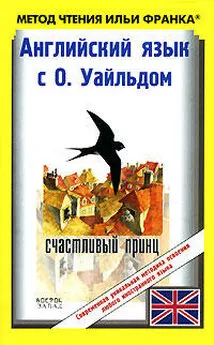
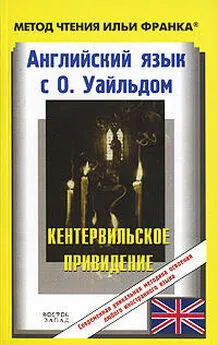
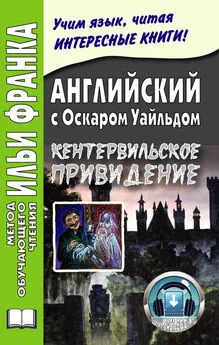
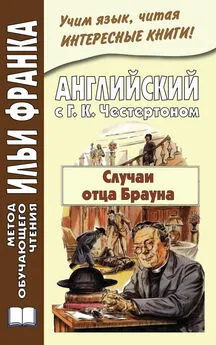
![О Генри - Принцесса и пума [The Princess and the Puma]](/books/1076182/o-genri-princessa-i-puma-the-princess-and-the-pum.webp)

